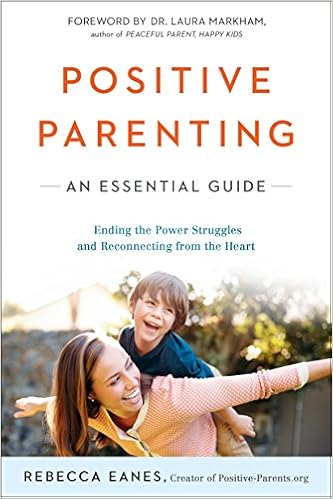What is Gentle Parenting
- Empathy
- Respect
- Understanding
However, if you’re still interested in the other types of parenting styles check out these below:
Authority: Authoritarian parents rule on just that: authority. Commands are given to children that they must follow regardless of the circumstances. If these commands are not followed, harsh punishment will ensue. These parents do not welcome feedback from their children.
It is met with severe punishment. The children tend to be quiet and unhappy. They have more of a fear than a love for their parents. Male children have trouble dealing with anger and female children have trouble facing adversity due to their heavily structured life where nothing ever changes.
Indulgent: Indulgent parents tend to be described as lenient. They allow immature and childish behavior. These parents expect the children to learn from their mistakes and to fend for themselves in most times of need. These parents tend to be democratic and allow for feedback from their children on issues.
They will hear both sides of an argument and usually make a compromise. Indulgent parents usually avoid confrontation with their children by all means but do tend to be more involved and emotionally closer to their children.
Authoritative: Authoritative parents are a combination of the two styles previously mentioned. They are the happy medium. While expecting proper behavior from their children, they welcome feedback and questioning on certain issues.
They’re able to demand things from their children but are also able to respond to what their child says, questions, and requests. These children tend to be the happiest, most confident, and self-assured of all the mentioned parenting styles. It is very difficult to be a purely authoritative parent.
Passive: Passive parenting is being completely uninvolved. These parents may never be home due to immaturity, work, or the like. These children are usually raised by grandparents, older siblings, babysitters, or themselves. There is no parental involvement at all.
Still interested in Gentle Parenting? Try out these Books to Get started
Raising Good Humans: A Mindful Guide to Breaking the Cycle of Reactive Parenting and Raising Kind

With this book, you’ll find powerful mindfulness skills for calming your stress response when difficult emotions arise. You’ll also discover strategies for cultivating respectful communication, effective conflict resolution, and reflective listening.
In the process, you’ll learn to examine your unhelpful patterns and ingrained reactions that reflect the generational habits shaped by your parents, so you can break the cycle and respond to your children in more skillful ways.
The Connected Parent: Real-Life Strategies for Building Trust and Attachment

Parenting under the best of circumstances can be difficult. And raising children who have come to your home from “hard places,” who have their own set of unique needs, brings even more challenges. You may have discovered that the techniques that worked with your birth children are not working with your adopted or foster child.
Positive Parenting: An Essential Guide (The Positive Parent Series)

Filled with practical, solution-oriented advice, this is an empowering guide for any parent who longs to end the yelling, power struggles, and downward spiral of acting out, punishment, resentment, and shame–and instead foster an emotional connection that helps kids learn self-discipline, feel confident, and create lasting, loving bonds.
The Gentle Discipline Book: How to raise co-operative, polite and helpful children

Gentle discipline focuses on teaching and learning rather than punishing. With plenty of practical advice and case studies from real families, it will enable parents to set boundaries and enforce them with compassion and respect; it also demonstrates how parents can inspire children to be better and do better and how to set a great example for them.
Gentle parenting is not about being a pushover – it means understanding children and having realistic expectations of them as well as responding appropriately and consistently.
The book covers a range of ages and the principles it contains work with toddlers, tweens, and teenagers equally well – because it helps parents respond to the unique needs of each child.
The Gentle Parenting Book: How to raise calmer, happier children from birth to seven

Parenting trends come and go. Gentle parenting is different – it isn’t a label for a precise set of rules but a method of parenting that embraces the needs of parent and child while being mindful of current science and child psychology.
It means parenting with empathy, respect, understanding – and boundaries. And for those parents who have previously used a more authoritarian style of parenting, there’s plenty of advice – and reassurance – on making the transition to a gentler approach. For many, gentle parenting comes as a relief because it chimes with their deepest instincts about the best way to raise their children.
The Gentle Sleep Book: Gentle, No-Tears, Sleep Solutions for Parents of Newborns to Five-Year-olds

In this revised and updated edition of her bestselling book, Sarah Ockwell-Smith offers a gentle, effective prescription for addressing the common sleep challenges encountered by parents of newborns to five-year-olds. Treading a carefully balanced line between the needs of sleep-deprived parents and those of the child, Sarah offers reliable, evidence-based advice including:
1. How long we can expect our children to sleep at each stage of development?
2. Why much of the popular advice on sleep is inaccurate and counterproductive.
3. How to approach common issues including frequent waking, night terrors, and bedtime refusal.
The Whole-Brain Child: 12 Revolutionary Strategies to Nurture Your Child’s Developing Mind

The authors explain—and make accessible—the new science of how a child’s brain is wired and how it matures. The “upstairs brain,” which makes decisions and balances emotions, is under construction until the mid-twenties. And especially in young children, the right brain and its emotions tend to rule over the logic of the left brain.
No wonder kids throw tantrums, fight, or sulk in silence. By applying these discoveries to everyday parenting, you can turn any outburst, argument, or fear into a chance to integrate your child’s brain and foster vital growth.
5 Love Languages Of Children: The Secret To Loving Children Effectively

- Discover your child’s love language
- Assist your child in successful learning
- Use the love languages to correct and discipline more effectively
- Build a foundation of unconditional love for your child
Plus: Find dozens of tips for practical ways to speak your child’s love language.
Discover your child’s primary language—then speak it—and you will be well on your way to a stronger relationship with your flourishing child.
No-Drama Discipline: the whole-brain way to calm the chaos and nurture your child’s developing mind (Mindful Parenting)

No-Drama Discipline provides an effective, compassionate road map for dealing with such tantrums, tensions, and tears – without causing a scene. Based on recent discoveries about the brain that give us deep insights into the children we care for, what they need, and how to discipline them in ways that foster optimal development, this book offers a ‘relational’ approach that builds on children’s innate desire to please their parents and get along well with others.
Triggers: Exchanging Parents’ Angry Reactions for Gentle Biblical Responses

Do you believe your struggle with anger stems from the wrong behavior you see displayed in your children? The knee-jerk reactions and blow-ups you’re facing are often a result of a bigger set of “triggers.” Some of these are external, like a child’s disobedience, backtalk, or selective hearing, while others are internal, like an overflowing schedule, sleep deprivation, or perhaps your own painful experiences from childhood.
How to Stop Losing Your Sh*t with Your Kids: A Practical Guide to Becoming a Calmer

Drawing on evidence-based practices, here is an insight-packed and tip-filled plan for how to stop parental meltdowns. Its compassionate, pragmatic approach will help listeners feel less ashamed and more empowered to get their, ahem, act together instead of losing it.






